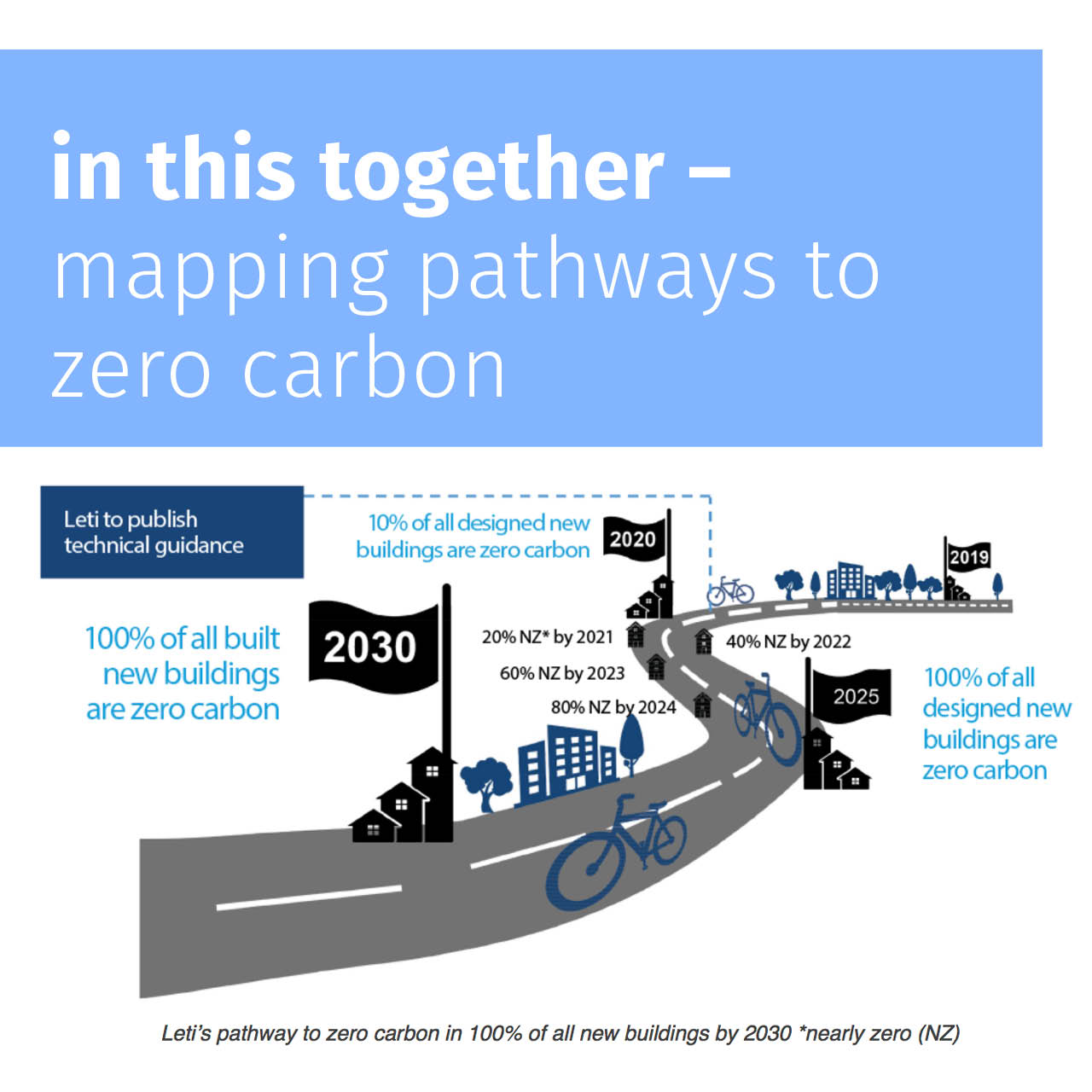
The design community are working together to advocate for a faster response to the climate and biodiversity emergency – creating and sharing knowledge and know how.
The design community are responding to the climate emergency, working collaboratively and openly sharing their approaches and responses. Architects Declare brings practices together to advocate for faster change, share knowledge and collaborate with other professionals. Following on from their commission into ethics and sustainable development the RIBA published a 2030 Climate Challenge setting out targets for operational energy use, embodied carbon and water use reduction.
The London Energy Transformation Initiative (LETI) has created a network of one thousand built environment professionals to put London on the path to zero carbon. The voluntary group is multidisciplinary, their Climate Emergency Design Guide and Embodied Carbon Primer explain how buildings can meet UK climate change targets in operational energy and embodied carbon. They identify key performance indicators, explain the role of clients/developer in decision making – and the role of policy makers and designers in strategy and implementation. They identify actions by RIBA Stages and offer useful case studies throughout.
They note that for new buildings to operate at net zero carbon by 2030 all new buildings will need to be designed to this standard by 2025. This is why practices like Fielden Clegg Bradley Studios have mapped out their route to Net Zero Carbon starting with all the projects at stage zero to two currently in their studios – leaving time to monitor completed projects in the lead into 2030.
… … …
September 2022